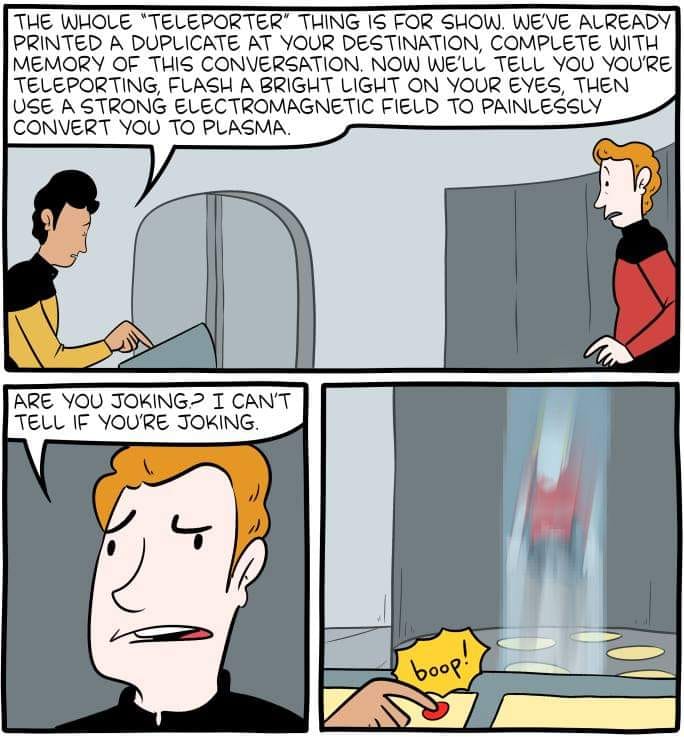this post was submitted on 03 Oct 2023
1022 points (98.3% liked)
Risa
7206 readers
25 users here now
Star Trek memes and shitposts
Come on'n get your jamaharon on! There are no real rules—just don't break the weather control network.
founded 2 years ago
MODERATORS
you are viewing a single comment's thread
view the rest of the comments
view the rest of the comments

It seems a silly question to ask, but interesting to think about because I can't think of a way to prove the intuitively obvious answer: how does one know that the duplicate doesn't somehow inherit the original consciousness, and some new one with the memories and personality of it doesn't get immediately generated in the original body?
My point is meant to be, that proving that two duplicates are not the same people as eachother, is not quite the same thing as proving that a duplicate is not the original person.
Consciousness is brain activity. New brain = new activity = new consciousness.
The activity of something is essentially information (consider how computer programs are ultimately just the activity of the components of a computer). If I copy information from one substrate to another, and do so with no changes, I don't have any new information. Applying that back to brains, assuming that consciousness really is only brain activity (which seems highly likely, but since we don't really understand the nature of consciousness, isn't completely proven), then I'd disagree with the new brain= new activity step
But you have a different instance of it. If there were no distinction, copyright wouldn't exist.